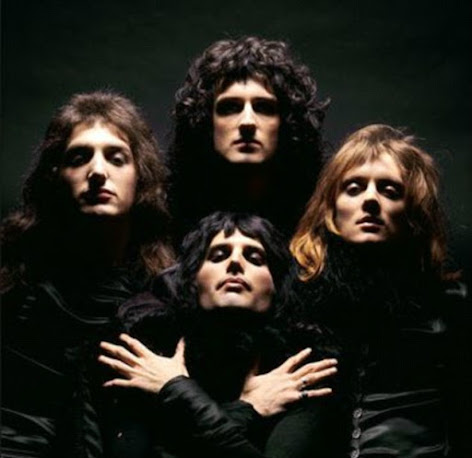In November 1971, all-female blues rock act Fanny took off with their hit single Charity Ball. ABC Dunhill saw their chance and quickly signed up Birtha, taking up rank amongst label mates Three Dog Night and Steppenwolf. Birtha never earned the same commercial success as Fanny, though were both marketed as heavy rock. After two albums and a final single (a cover of Steely Dan’s Dirty Work) Birtha’s success waned and they were dropped by Dunhill before 1973 was out. For me, Birtha totally overshadow Fanny’s comparatively average blues sound. Birtha have huge rock appeal in a way that fanny just don’t, so Fanny, you can just get to the back of the queue and stay there!
Fanny’s label Reprise Records decided to brand their girls with the slogan “Get Behind Fanny.” Perhaps it was felt that rock audiences of the time would be put off by an all girl group. Whatever the reason, Dunhill would not be outdone and had to go one better with “Birtha Has Balls”. The slogan was a winner; especially when slapped onto their infamous T shirts. When they played the 1972 Rockingham Festival, members of Alice Cooper, Fleetwood Mac and the James Gang all chose to wear them for their own sets and revelers could clearly see the logo disappear from view as Alice left the arena hanging out of a helicopter still sporting his Birtha shirt. Oddly enough, Playboy magazine had a problem with the tastefulness of the Advert and refused to print the slogan on their matchboxes when they played at the Chicago club. Supporting the Kinks, Birtha hit the UK and even bagged an appearance in the British coffee table mag ‘Titbits’, posing topless on the front cover proclaiming “We want male groupies”. They were serious contenders who really lived up to their allocated metaphor, they are 100% women but there is no doubt that Birtha unquestionably has balls. I wish there were lots of all-female bands I could say cut it the same, but Birtha have to be my favorite all female band ever. They skillfully combine numbers which are gritty and heavy along side soulful blues numbers and ballads. They are seductive, solid, funky, from the heart sisters whose sound is unmistakably their own. Only Rosemary Butler went on to have a continuing career which disappointingly went in the totally opposite direction singing with the likes of Linda Ronstadt, James Taylor, Jackson Browne, and Dolly Parton.
BILLBOARD MAGAZINE - 9/9/72:
There is no getting around it. Birtha has it! They're an all chick group and we all know that you've sort of got to make allowances . . . well forget it, they project more power and drive than most male groups with similar instrumentation. The intensity and proficiency they exhibit is total rapture excelling both instrumentally & vocally. Rock on with "Free Spirit," "Judgment Day" and "Feeling Lonely."
This first eponymous album was produced by Steppenwolf’s producer Gabriel Mekler whose high credentials definitely work to their advantage. Birtha is a mammoth stomper and has to be the most powerful and versatile record ever made by an all-girl band. They got the same kind of groove as Grand Funk, heavy funk and blues laden guitars with crystal clear vocals, great harmonies and that all American sound. They are always bass driven; Rosemary has that deep humming sound that really pounds some seriously exiting energy into the songs. These girls are serious rockers; they kick the shit out of loads of male rock bands of the time and all time for that matter. Out of the four, three of them take lead vocal. For the main part though it’s Liver Favela, who has all the guts and rasp of Janis Joplin. With an abundance of untamed fervor, she is by far the coolest, and she’s without doubt the wildest singing female drummer you ever heard. From: https://www.headheritage.co.uk/unsung/review/1439/





























